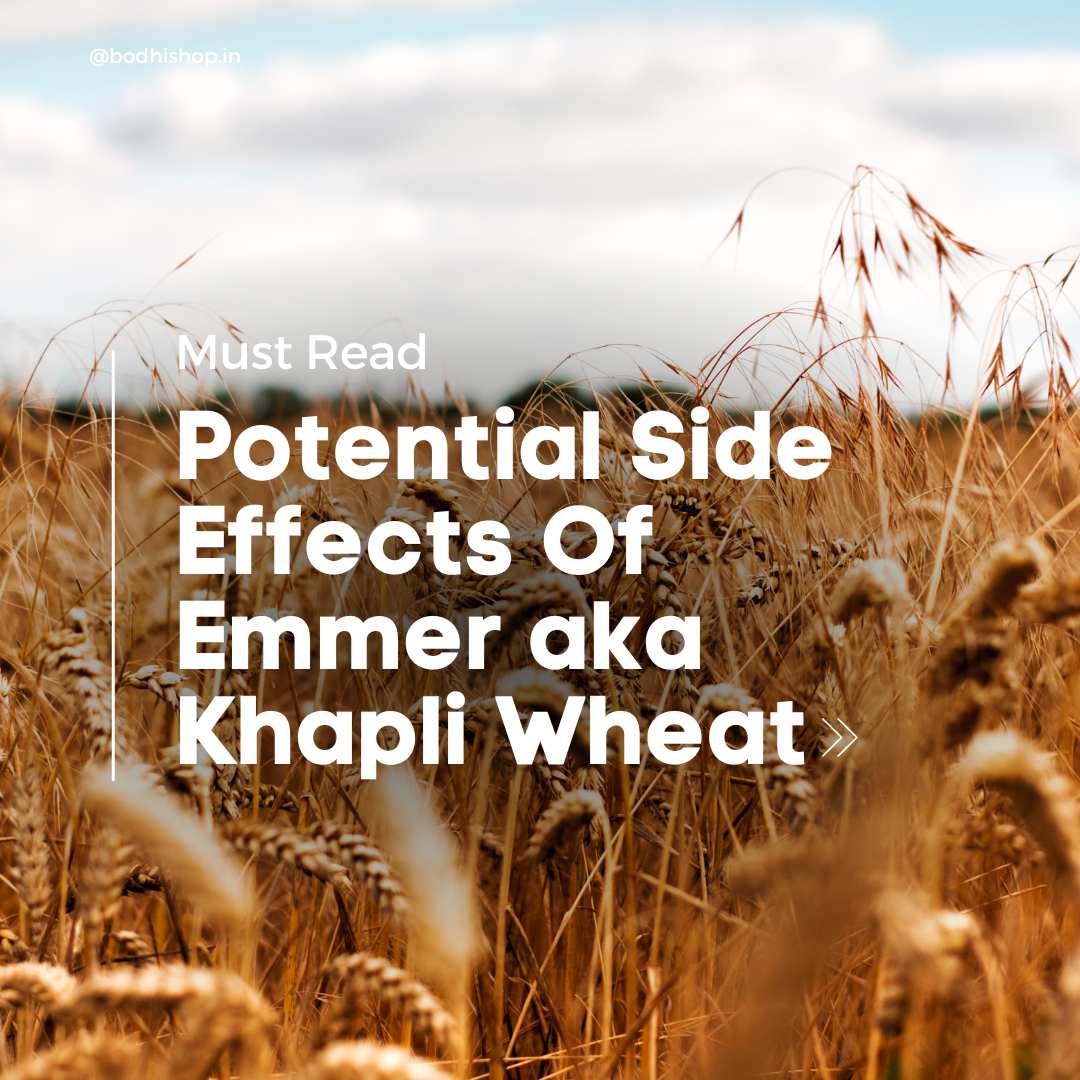This article is a property of Bodhishop.in Any unauthorized duplication, reproduction or publication is strictly prohibited. Contact support@bodhishop.in for licensing of above article.

Potential Side Effects of Khapli Wheat Atta: What You Need to Know
Share
Introduction:
In recent years, Khapli atta, derived from the ancient grain Khapli or Emmer wheat, has gained popularity as a wholesome and nutritious alternative to conventional wheat flour. While it comes with a host of perceived health benefits, it's crucial to delve into the potential side effects associated with its consumption. In this article, we'll explore these considerations to help individuals make informed choices about incorporating Khapli atta into their diets.
1. Gluten Sensitivity
Despite having lower gluten content compared to modern wheat varieties, Khapli atta still contains gluten. Individuals with gluten sensitivity or celiac disease may experience adverse reactions, including digestive discomfort, bloating, and other symptoms. It is essential for those with gluten-related conditions to exercise caution and opt for gluten-free alternatives.
2. Allergic Reactions
Some individuals may be allergic to specific grains, including Khapli wheat. Allergic reactions can manifest as itching, swelling, digestive issues, or respiratory difficulties. Anyone experiencing these symptoms should seek medical attention promptly.
3. Caloric Considerations
While Khapli atta is rich in nutrients, it's essential to be mindful of its caloric content. Excessive consumption, even of a nutritious food, can contribute to weight gain. Individuals aiming to manage their weight should be cognizant of portion sizes and overall caloric intake.
4. Cost and Accessibility
Khapli atta may not be as widely available as conventional wheat flour, and it might be relatively more expensive. Accessibility and cost could be factors to consider, particularly for those on a budget or in regions where Khapli wheat products are not readily accessible.
5. Individual Variability
Every individual reacts differently to foods, and what works well for one person may not be suitable for another. Some may experience digestive discomfort or sensitivity even if they do not have diagnosed allergies or intolerances. It's important to pay attention to individual reactions and adjust dietary choices accordingly. The gluten content in emmer wheat also varies due to high expertise required in growing emmer wheat. Gokheti Khapli atta is known to have lowest gluten content in India hence it is highly sought after even if it is an expensive option.
Conclusion:
While Khapli atta has gained popularity for its potential health benefits, it's crucial to be aware of potential side effects, especially for those with specific health conditions or dietary requirements. Before making significant changes to your diet, consulting with a healthcare professional or nutritionist is advisable. They can provide personalized guidance based on individual health needs, ensuring that the incorporation of Khapli atta aligns with one's overall well-being. Making informed decisions about food choices is essential for promoting a healthy and balanced lifestyle.

1 comment
I satisfied with the answers provided in the article to clear my doubts about kapli atta